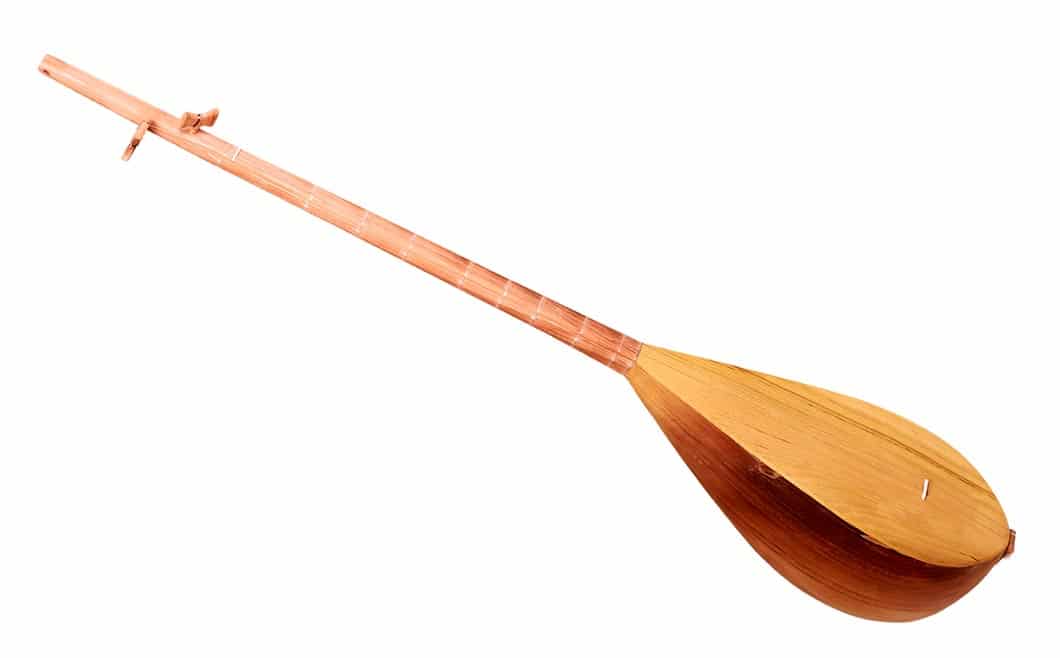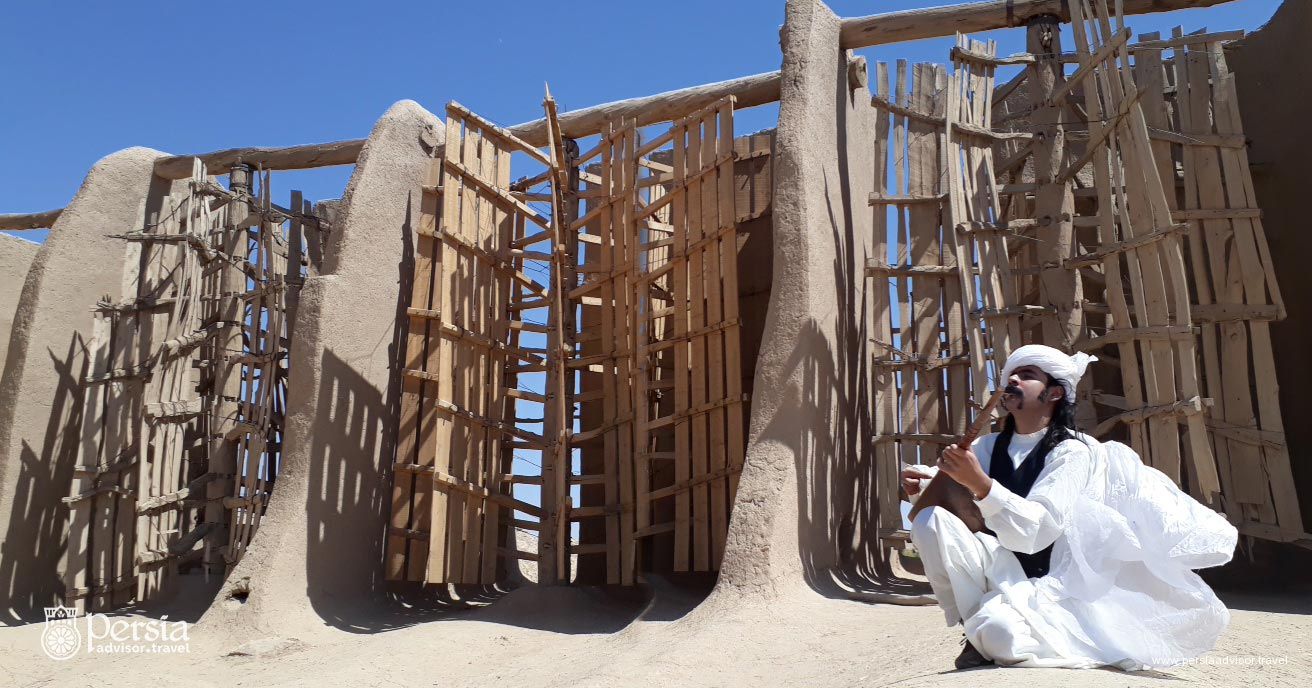
Dutar
Photo by ijavan.ir
Dutar is a traditional simple long-necked lute that has a dulcet and melodic tone despite its simplicity. The neck which is sometimes decorated with camel bone and precious stones ranges between one to two meters long. Dutar in Persian means two strings; some attribute one string that plays the main melody to female, and another that functions as the accord to male. The majority of Dutar players use their index and thumb fingers for playing.

Kalil Sheikh, Dutar player from Khaf region, Khorasan Razavi, Iran
Photo by Meysam Bazekavat
The images of Dutar in ancient inscriptions prove the antiquity of this instrument that is still popular in contemporary Iran. The crafting and playing Dutar are tied with the culture of many ethnic groups in Iran who play this instrument in a wide range of social and cultural occasions and ceremonies along with ethnic, cultural, epic, and historical lyrics strengthening their identity and cultural pride. Traditionally, the knowledge of crafting and playing the Dutar transmits from master to pupil.

Kalil Sheikh, Dutar player from Khaf region, Khorasan Razavi, Iran
Photo by Meysam Bazekavat
The Traditional Skills of Crafting and Playing Dutar was registered in the list of Intangible World Heritage of UNSECO in 2019.

